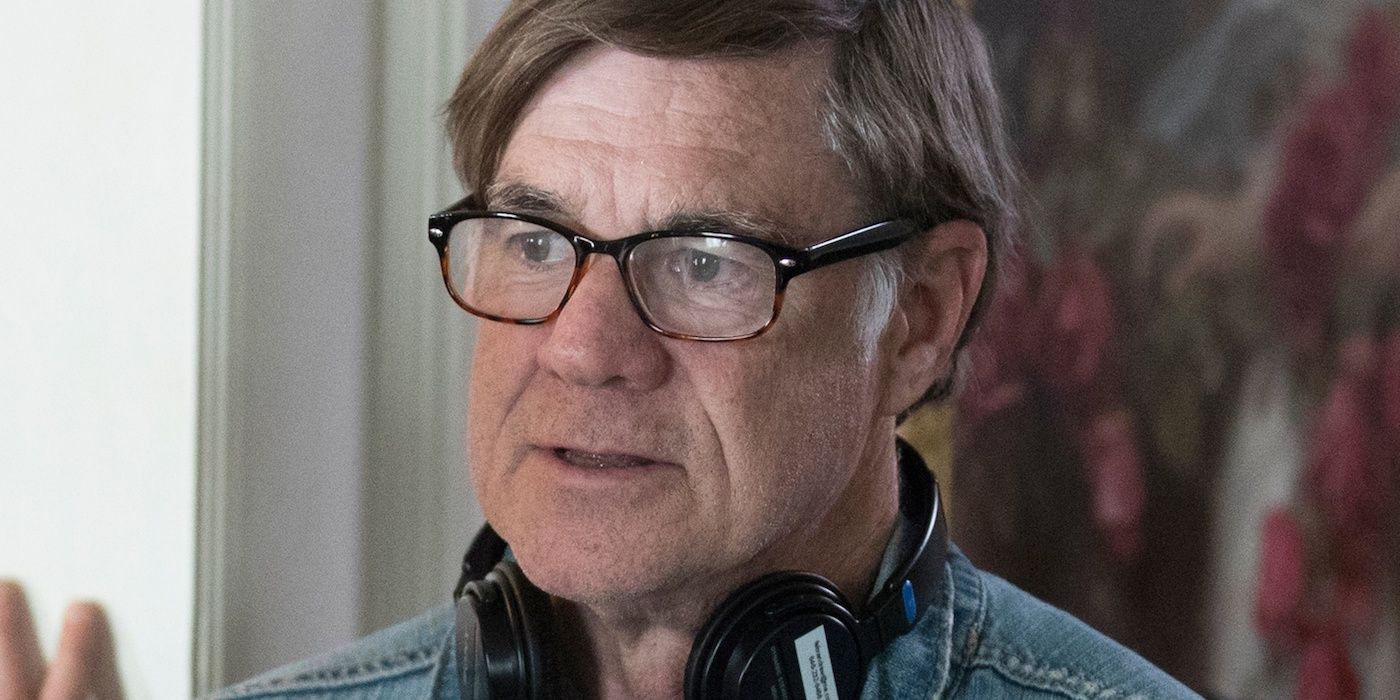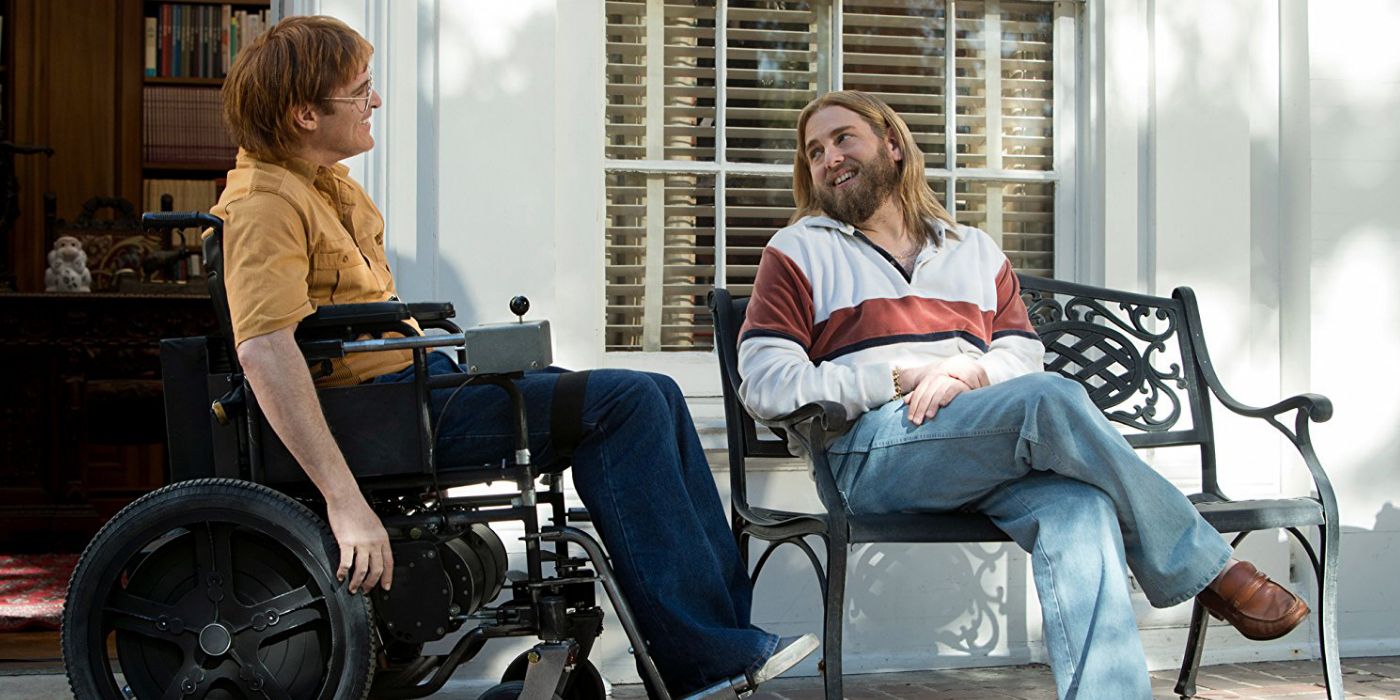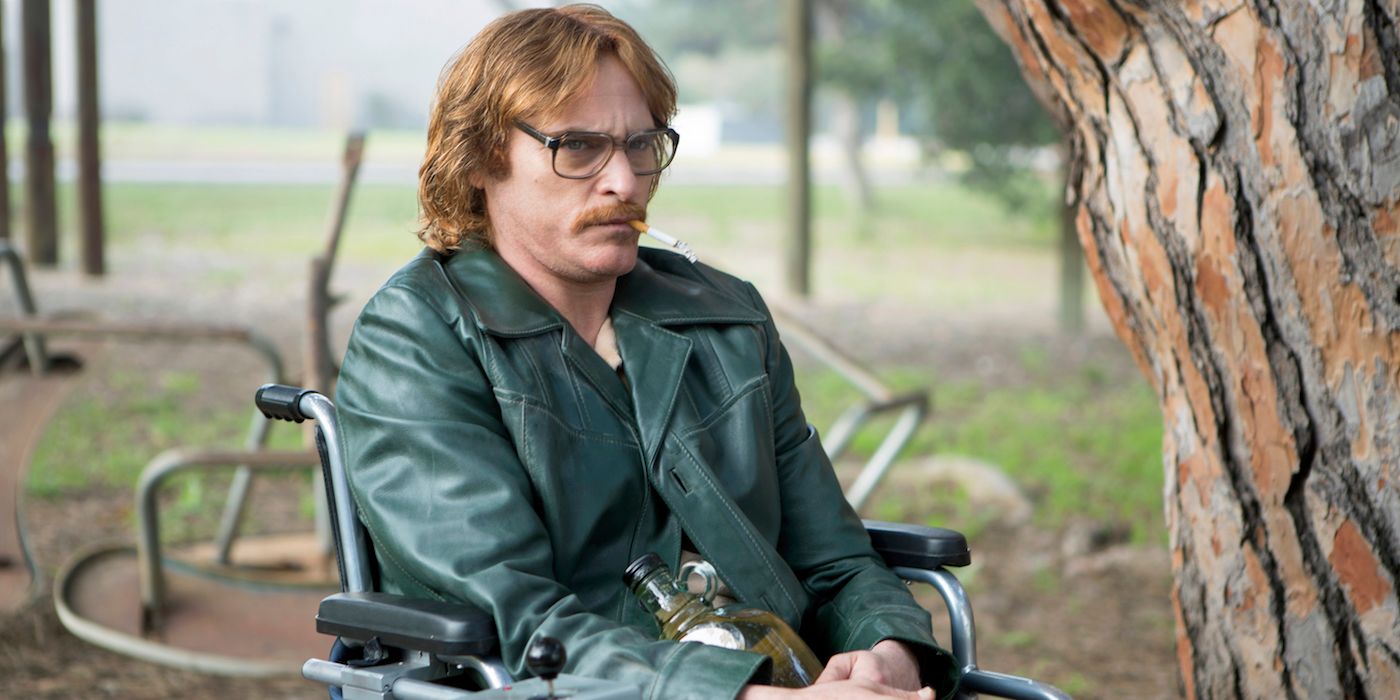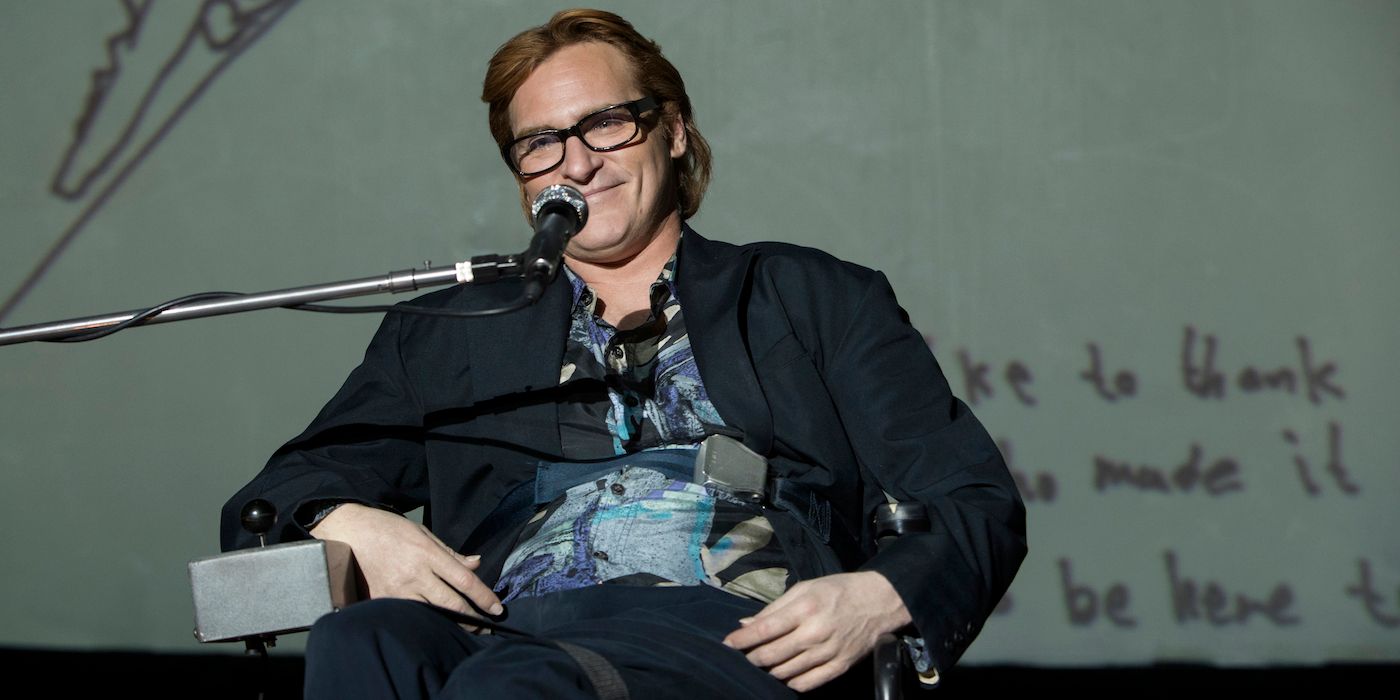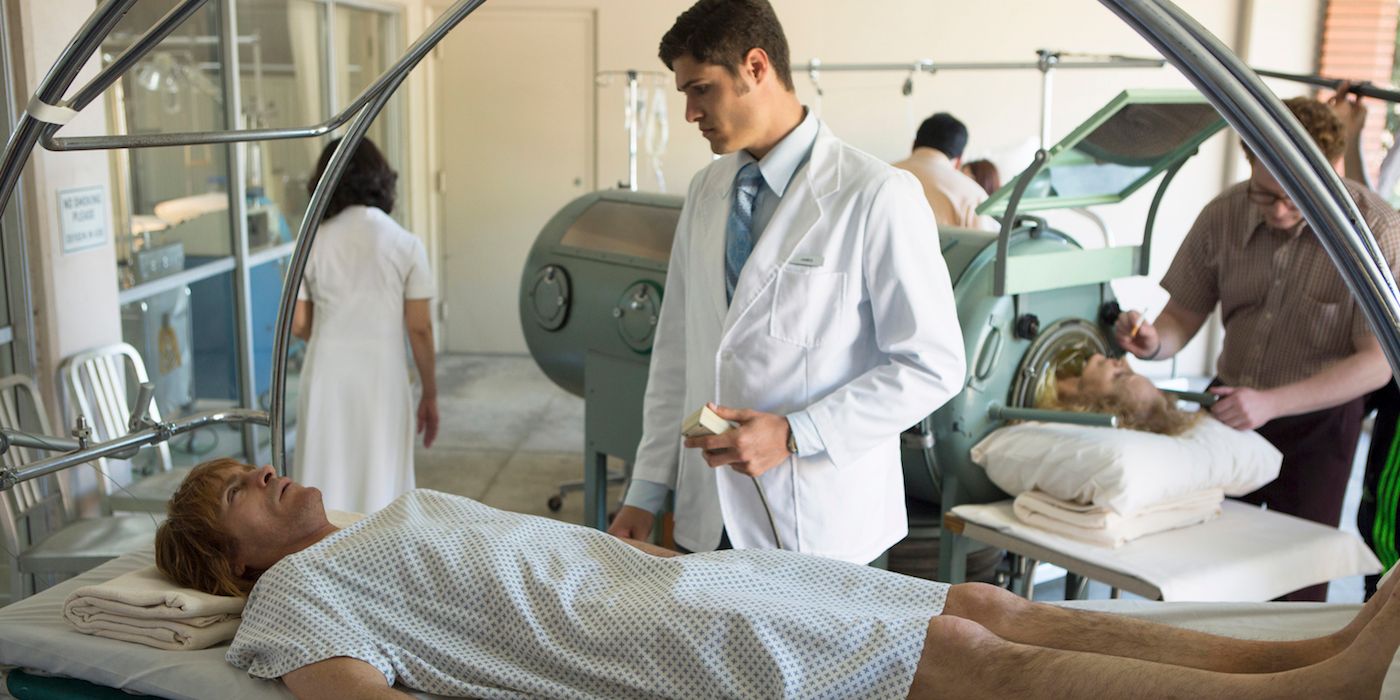In Don't Worry, He Won't Get Far On Foot, Joaquin Phoenix stars as John Callahan, the real-life alcoholic quadriplegic cartoonist whose work entertained the masses while simultaneously offending some oversensitive and thin-skinned readers.
Directed by Gus Van Sant, the film is an entertaining and uplifting character study about living life on the sunny side even in the face of overwhelming tragedy. Boasting an all-star ensemble cast that includes Rooney Mara, Jonah Hill, Jack Black, and Udo Kier, Don't Worry, He Won't Get Far On Foot is one of 2018's most celebrated films, and one of Amazon Studios' most high-profile releases to date.
Related: Don't Worry, He Won't Get Far On Foot Trailer
While promoting the film's release on Amazon Prime Video, we spoke to director Gus Van Sant (My Own Private Idaho, Milk). The legendary auteur shared stories, of his own origins as a student filmmaker, to this movie's earliest days as Robin Williams' 1990s passion project, to his unique approach to blocking out scenes.
Before I picked up the phone, I was just thinking about your incredible body of work. I mean, My Own Private Idaho, Finding Forrester – which was hugely impactful to me, personally – and now this movie, Don't Worry, He Won't Get Far On Foot. Are you a person who likes to look back on your work and reflect on your accomplishments? Or are you someone who leaves that in the rear-view mirror and is always focusing on the next project?
Yeah, I don't really go back and think of that. You know, you leave them behind.
Speaking of reflecting on one's past, do you mind telling me a little bit about, just before we get into the movie, being a young man growing up? I know that you moved around a lot, but you were born in Louisville.
I was born in Louisville, but I moved from there within the first year of my life. I grew up partly in Denver, Colorado.
I know that you were shooting short films when you were in high school. Did you know what you wanted to do, who you wanted to be, from a very early age?
I liked shooting short films in high school, but it was because of teachers showing us films. I started making films because my teacher was really encouraging, not because it was my idea. He showed us Citizen Kane. He was probably the most influential...
I don't even know if teachers truly know the inspiration they have on us, but they really do.
We were reading Samuel Beckett, we read Lord of the Flies. It was pretty extensive... He showed us a short film that you can find online, called Very Nice, Very Nice, and it's about seven minutes long, just a cataclysmic work of sound and imagery, and it sort of pushed me into, like, Marshall McLuhan. He really got me going in the direction that was not accepting of standard storytelling.
Did you ever get to keep in touch with this teacher after you broke out and became famous?
I kept in touch with my Art teacher, but I didn't keep in touch with the English teacher. It was an English teacher who showed us the movies.
Let's talk about John Callahan. I must concede that I really didn't know about him at all until I learned about this movie. I read that Robin Williams was the one who brought his story to your attention. Can you tell me a bit about the timeline of when that was, when you first learned about the story and thought it could be a movie?
Yeah, the first time I heard about the story... I actually met Callahan before I was fully aware of his cartoons. He lived in Portland, where I lived. We were both young artists. I don't think I ever had a project in this paper, it was called Clinton St. Quarterly. It was sort of a group of artists running that artists' quarterly, and Callahan had a cartoon in it. That was probably the first time I saw his work. There was a weekly calendar paper and he had a cartoon in it, and that was sort of his main exposure in Portland, and that was around the time I met him. Right around that time, he was big enough to get published in Penthouse, and his cartoons were syndicated all over the country. He was on 60 Minutes, they did a section on him. He was well-known in Portland, at the time. Then, about ten years later, after doing Good Will Hunting, Robin Williams bought the rights to Callahan's book and wanted to make it into a movie. That was around 1997. I realized it was kind of a cool idea, and Robin asked me to develop a script, which I did, with a couple of different writers. But it just never went anywhere. I think it was too risky at the time, at that period in Robin's career. Right around Bicentennial Man. I think we started writing the screenplay before Bicentennial Man, but I think that movie made his career less self-propelled.
I see, so it took a while before the movie's time came around again.
It was always Robin's thing. He developed it. The screenplay belongs to his production company and Sony Pictures. The project was his, it didn't have anything to do with me until after he died, and Sony Pictures asked me if I wanted to do anything with the material, because they still owned the book.
Were you working from the script that had been written all those years ago, or was it rewritten from scratch?
I rewrote it from scratch. The other script had three different writers. I just started over, from scratch.
Was Joaquin your first choice?
Joaquin was my first choice. I sent him the story and he said yes.
I'm always interested in the relationships between actors and directors, especially recurring pairings like you and Joaquin. How does it work, do you call him and say, "I'm making a movie," and is he like, "Cool, who am I this time?" How does that work out?
(Laughs) I don't think he's the type of actor who would say that, honestly. He wants to know what it is first. There are actors who will say that to their directors, and even actors who will say that to me, who will say, "I will play anyone for you," but Joaquin is much more curious about it at first. I explained it to him, and he said, "oh, send it to me," so I sent him everything I had, and then he agreed.
Is Joaquin someone who is very collaborative when developing a character? Or does he just want to understand the script before he commits?
In this case, he committed without seeing a final script. When it was closer to the final script, he wanted to make sure he understood every word of the script. He's someone who will go through the script, page by page, just to make sure the he understands what the film is trying to do.
That's so interesting.
I think that's one of the ways that he's been working. Sometimes, a scene might seem really simple, and we'll talk about it, and you realize, oh, I see, he wants to know what I'm trying to do with the character so he can help me do it!
One thing I really like about your work in general, but I think it's particularly noticeable here, is that you have such an eye for depth. Almost like a 3D movie. There's so much depth in every frame. If you told me this was a 3D movie, I would believe you. Can you tell me about staging and blocking for this movie? Was that something you had in mind for Don't Worry, He Won't Get Far On Foot?
I think I've gotten to a point where I pay attention to all the different things in the frame. I guess, like Wes Anderson. When you think about it, there's so many things to play with. You can have many different things going on in your frame. Stuff going on in the background that can actually connect. It makes the scene very complicated. At this point, I just try to get everything ready on the set. Your collaborators haven't necessarily finished their jobs until the day you're shooting. The art directors haven't decided what painting is going to go on the wall, the lighting person hasn't put up the lights yet. The costumers have just finished sewing the costumes. There's so many ways to do it. You can draw it all out, literally draw everything inside a frame, which is what Hitchcock would do. He would say, once you finish the storyboards, then the film is finished. In my case, the way I've been working, I like to use storyboards, I used them on Mala Noche (Van Sant's feature film debut). But since then, it's such a big giant ensemble of different departments, that it's almost like you pull up a dump truck that just dumps everything onto the set, and then I start shooting without even paying attention to what comes up. Like, if there's foreground action, it's just because they got in the way! You know, it's not so much that I'm planning it out, camera-wise. I do like to work on blocking the action, which includes the foreground and the background and so forth. I figure, if you get your blocking just right, it doesn't really matter what your blocking is. It will look great. When you see things that were shot on surveillance cameras, no matter what is, the surveillance camera has not been put in place properly, it's just been put on a roof or something like that. The thing that works on making that surveillance shot perfect is the blocking. It's not the angle. I always try to work on the blocking a lot. A lot of times, that means literally blocking people out of view.
More: Joaquin Phoenix's Joker Movie: Every Update You Need To Know
Don't Worry, He Won't Get Far On Foot is currently available on Blu ray and DVD, and releases on Amazon Prime Video on February 8.

